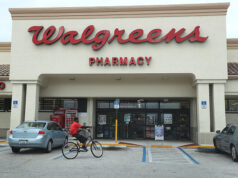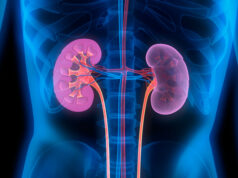
Worries about the potential for the United Kingdom’s anticipated withdrawal from the European Union in two months to disrupt pharmaceutical supply chains has prompted one of the continent’s largest drugmakers to begin stockpiling medicines.
Switzerland-based Novartis said Friday that it was “building increased inventories” of drugs that it markets in the UK amid the growing threat that Brexit – scheduled to occur March 29 – will occur without a deal with the EU to allow for a smoother transition. A so-called no-deal Brexit would mean an abrupt divorce from the bloc, without any trade or other agreements and would likely have catastrophic consequences for the UK economy.
“Following Parliament’s vote, the risk of UK exiting the EU without a deal is increased and this will be hugely impactful for patients, particularly around the supply and safety of medicines,” read Novartis’s statement, referring to a Jan. 15 vote in the House of Commons rejecting a deal that Prime Minister Theresa May had drawn up with EU officials in Brussels. “Divergence from the close regulatory and legal cooperation that exists today between the UK and the EU has far-reaching implications for the way the life sciences sector operates and its ability to develop and deliver medicines for UK patients.”
At present, drug industry regulation in the UK falls most directly under the Medicines and Healthcare products Regulatory Agency, or MHRA, which itself answers to the European Medicines Agency. The EMA is a European counterpart to the US Food and Drug Administration, regulating drugs across the EU and also the European Economic Area nations of Norway, Iceland and Liechtenstein. Under May’s deal, the EMA – currently headquartered in London but relocating to Amsterdam due to the UK’s withdrawal – would continue regulating medical products in the UK while the country set up its own regulatory structure and forged trade and other agreements with the EU. But under a no-deal Brexit, the MHRA would suddenly find itself on its own.
The MHRA said Wednesday that if the withdrawal happens without a deal, it will no longer be part of the EU regulatory system. It added that it has a contingency program in place if it loses access to the EU computer network. “If the UK leaves the EU with no deal, the UK would no longer be part of the EU medicines and medical devices regulatory networks. Submissions related to human medicines would need to be submitted directly to the MHRA,” the statement read.
The drug industry has already raised alarms about the potential consequences of a no-deal Brexit to the supply chain and also the conduct of clinical trials, including the UK’s continued attractiveness as a center for medical research.
In its statement Friday, Novartis said that due to the complexity of the supply chain, it is vital for the government to make minimizing disruption to the medicines supply the highest priority in the event of a no-deal Brexit and ensures there is cooperation in the regulation of drugs should that happen. “This includes clarity over customs arrangements, both to and from Europe, and to minimise disruption at our borders. It is also imperative that [National Health Service] trusts and pharmacists adhere to the Government’s advice not to stockpile medicines so supply can be managed centrally, minimising the risk of medicine shortages across the UK,” the statement read.
Companies in other sectors have expressed alarm and sought ways to minimize the damage as well. Reuters reported Friday that French cosmetics maker L’Oreal was stockpiling cosmetics in the UK in preparation for Brexit. The company does not expect a significant effect on its business from Brexit, as the UK accounts for 3 percent of sales, but that it no longer has a manufacturing base there, hence the stockpiling. Others, like Airbus and Sony, have indicated they may move operations from the UK to the EU or not expand existing British operations due to the withdrawal.
Photo: Christopher Furlong, Getty Images







